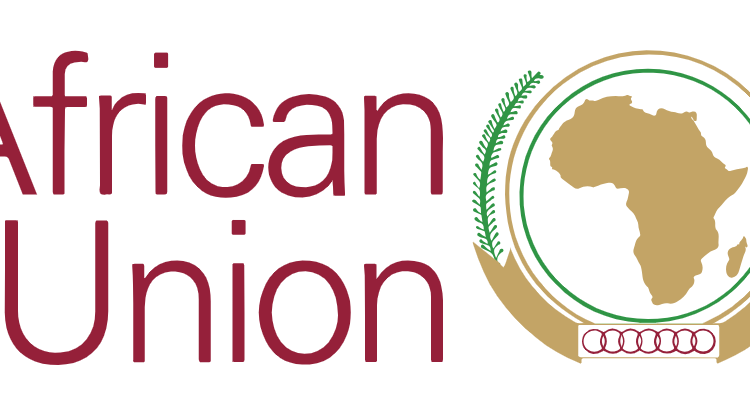Empowering African Women from the Start: Integrating Human Immunodeficiency Virus (HIV) Prevention into the First Bonds of Life
Each year, Pan-African Women’s Day (PAWD) reminds us of the enduring legacy, resilience, and leadership of African women. However, as we celebrate, we must also confront a lingering truth: far too many pregnant and breastfeeding women in Africa are still left behind in HIV prevention efforts. Pregnant and breastfeeding women are not merely recipients of care, they are architects of community wellbeing, leaders within households and societies, and central to the intergenerational health equity we must pursue.
The theme for PAWD 2025, “Advancing Social and Economic Justice for African Women through Reparations”, reminds us of the critical need to address systemic social and economic inequalities hindering women’s empowerment and advancement. PAWD 2025 coincides with the World Breastfeeding Week 2025, themed “Prioritize Breastfeeding: Create Sustainable Support Systems.” Therefore, we are also called to translate that legacy into concrete action for the next generation, starting from pregnancy and the earliest days of life. This year, we call for an intentional shift to integrate HIV prevention, including PrEP (Pre-Exposure Prophylaxis), Prevention of Mother-to-Child Transmission (PMTCT), and Early Infant Diagnosis (EID) into the broader maternal and child health ecosystem. Doing so is not only scientifically sound; it is a moral and human rights imperative, and a step toward redressing historic injustices through maternal health equity.
A Gendered Lens on HIV Prevention
The African Union Commission (AUC) has long championed the rights of African women and girls. AU frameworks, including the Protocol to the African Charter on Human and Peoples’ Rights on the Rights of Women in Africa (Maputo Protocol), the AU Strategy for Gender Equality and Women’s Empowerment, and the Catalytic Framework to End AIDS, TB, and Malaria by 2030, guarantees equitable and affordable access to HIV prevention and treatment services. Nonetheless, gender inequality continues to drive HIV vulnerability, especially among adolescent girls, young women, and mothers. On a continent where women bear the brunt of both unpaid care work and HIV infections, we must place pregnant and breastfeeding women at the heart of HIV prevention strategies.
Pan-African Women’s Day is more than a celebration; it is a policy moment. We should use this occasion to strengthen the link between reproductive health, HIV prevention, and gender equity. In our communities, we have witnessed firsthand ways midwives and frontline workers can transform maternal care when equipped with the tools, training, and trust to do so. We need to reimagine HIV prevention not as a siloed programme, but as a foundational component of respectful, comprehensive, gender-responsive maternal health.
Breastfeeding as a Health Justice Issue
The 2025 World Breastfeeding Week theme urges us to prioritise breastfeeding through sustainable systems- systems that must also prioritise the health and HIV status of the mother and child. Offering long-acting PrEP like CAB-LA, ensuring routine HIV testing during antenatal care, and integrating EID into immunisation schedules are essential to building that system. This is how we ensure that breastfeeding is not only a biological bond, but also a protective, empowering act, free of fear, stigma, or silence. Sustainable breastfeeding support must include comprehensive maternal diagnostics and wraparound care. Let us also ensure that every woman is met with dignity, discretion, and informed choice — whether through access to long-acting PrEP, timely testing, or compassionate postpartum support.
A United African Response
We must elevate community engagement, involve Traditional and Religious leaders, and support healthcare workers who are often themselves women and the first and sometimes only line of care for pregnant and breastfeeding women. Pan-African leadership on all levels, from governments to grassroots, must ensure that every mother has access to life-saving HIV prevention tools. Transforming outcomes for mothers and babies requires systems change, built on multisectoral partnerships. From ministries to midwives, from labs to legislatures, we must align our investments with our aspirations, for a future where no woman is left behind.
The AUC Women, Gender, and Youth Directorate and Africa REACH Leadership Council stand together to say: African women should live, lead, and breastfeed without the shadow of HIV. As we celebrate Pan-African Women’s Day and Breastfeeding Week, let us continue to advocate for and implement policies that lead to health emancipation. May we renew our collective resolve to ensure that African women can live, lead, and nourish the next generation, in health, in dignity, and in freedom from HIV.
Distributed by APO Group on behalf of African Union (AU).



